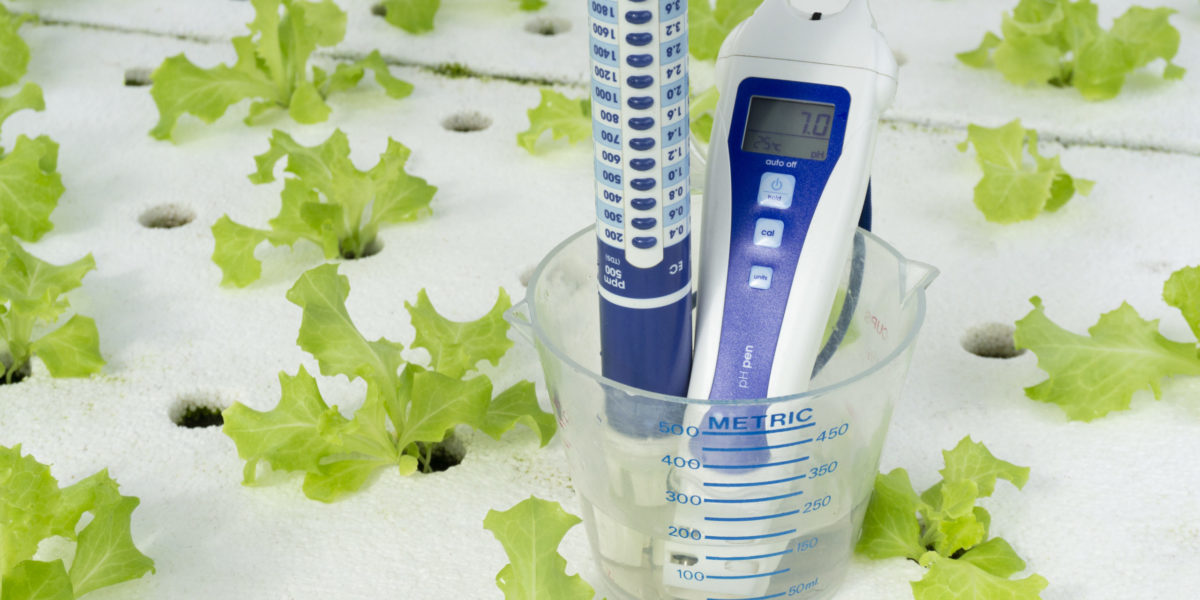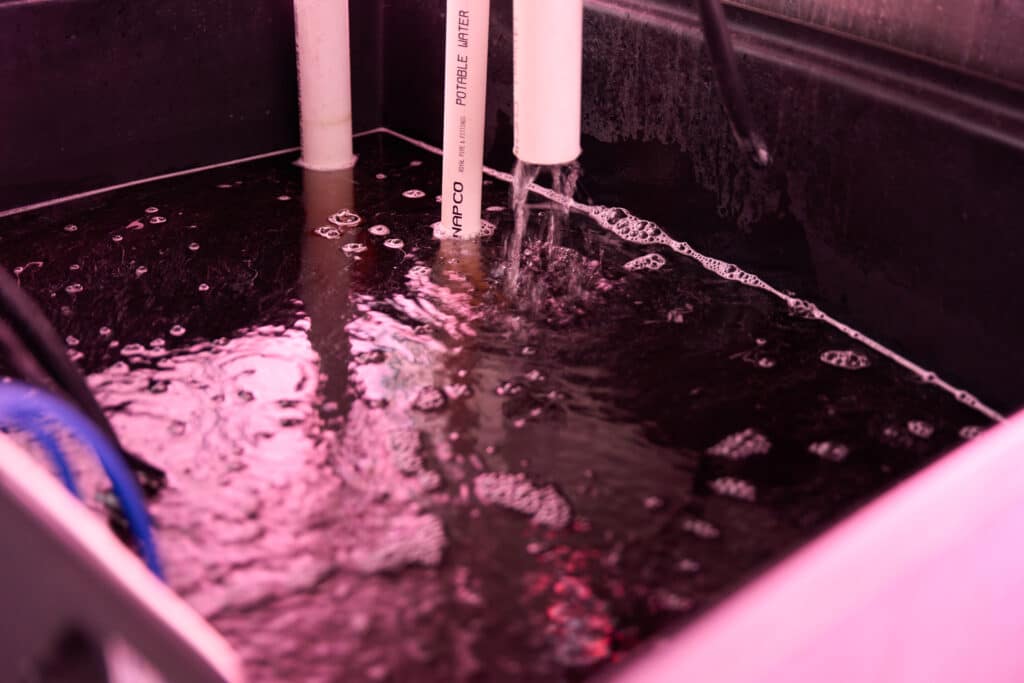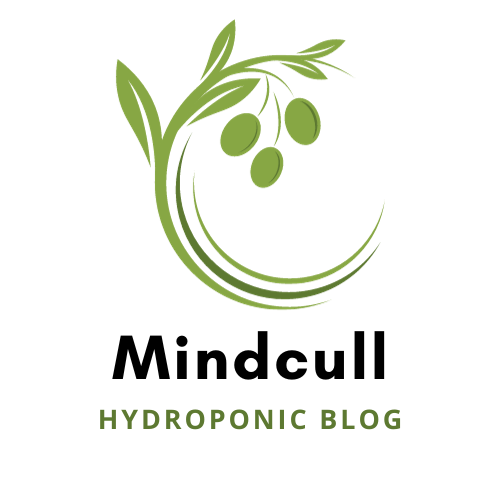Crystal Clear: Ensuring Water Quality in Hydroponic Systems
Hydroponic Water Quality: Ensuring Success for Your Plants!
When it comes to hydroponics, water quality is key. You might be wondering, “What’s the big deal?” Well, my friend, it’s all about giving your plants the best environment to thrive.
In this article, we’re diving deep into the world of hydroponics and exploring why water quality matters. From pH levels to nutrient content, we’ve got you covered. So, grab your growing gloves and let’s get started!
Now, you might be thinking, “Why should I care about water quality in hydroponics?” Well, let me tell you, my curious green thumbs! Maintaining the right pH balance and nutrient levels in your hydroponic system can make or break the health and growth of your plants.
1. pH level maintenance
2. Electrical Conductivity (EC) monitoring
3. Oxygenation of the water
4. Biofilm prevention
5. Water temperature control. By adhering to these practices, you can ensure the highest quality water for your hydroponic plants, leading to healthier and more abundant yields.

Understanding Hydroponic Water Quality: A Comprehensive Guide
When it comes to hydroponic gardening, one of the key factors that determines success is the quality of the water used. In this comprehensive guide, we will take a deep dive into the importance of hydroponic water quality and offer valuable insights on how to ensure optimal conditions for your plants. From understanding the role of pH levels to managing nutrient solutions, this article is your go-to resource for mastering hydroponic water quality.
The Role of pH Levels in Hydroponic Water Quality
In hydroponic systems, maintaining the right pH levels is vital for plant health and nutrient uptake. The pH scale ranges from 0 to 14, with 7 being neutral. Most plants prefer a slightly acidic to neutral pH range of 5.5 to 6.5. If the pH deviates from this range, nutrient deficiencies or toxicities can occur, affecting plant growth and overall health.
To ensure optimal pH levels, regular monitoring is essential. pH testing kits or meters are readily available and can accurately measure the pH of your nutrient solution. If the pH is too high, you can lower it by adding pH down solutions or acids like citric acid or phosphoric acid. Conversely, if the pH is too low, you can raise it by using pH up solutions or alkaline substances such as potassium hydroxide.
It is important to note that different plants may have varying pH preferences, so it’s essential to research the specific requirements of the crops you are growing. By maintaining the correct pH levels, you create an environment conducive to nutrient absorption and optimal plant growth.
Monitoring and Maintaining Nutrient Levels
The nutrient solution in a hydroponic system plays a critical role in providing essential elements for plant growth. Monitoring and maintaining the correct nutrient levels is key to ensuring healthy plant development and maximizing yields.
Regular measurements of electrical conductivity (EC) and total dissolved solids (TDS) are necessary to gauge the concentration of nutrients in the water. EC measures the electrical conductivity of the solution, which correlates to nutrient levels, while TDS measures the total amount of dissolved solids.
Both EC and TDS values provide insights into the nutrient strength; they can indicate whether the solution is too diluted or too concentrated. If nutrient levels are lacking, adjustments can be made by adding appropriate hydroponic fertilizers to replenish the essential elements. Conversely, if nutrient levels are too high, diluting the solution with fresh water can help maintain a balanced concentration.
The Importance of Oxygenation in Hydroponic Water Quality
While providing plants with the proper nutrients and pH levels is crucial, oxygenation of the hydroponic water is often overlooked but equally important. Oxygenation enhances root health, improves nutrient uptake, and prevents the growth of anaerobic bacteria that can harm plant roots.
In traditional soil-based gardening, oxygen naturally circulates through the soil. In hydroponics, this circulation must be facilitated through different methods, such as the use of air stones or air pumps. These devices release bubbles of oxygen into the water, creating a well-oxygenated environment for the plant roots.
Proper oxygenation can be achieved by ensuring adequate aeration and water movement in the hydroponic system. Regularly inspect air stones and air pumps to ensure they are functioning optimally, and maintain an appropriate water temperature to promote oxygen dissolution.
Nutrient Solution Formulation for Optimal Hydroponic Water Quality
The process of formulating a nutrient solution for hydroponics requires precision and attention to detail. By customizing your nutrient solution, you can ensure that your plants receive the specific elements they need for healthy growth.
Determining Essential Nutrients for Your Plants
The first step in formulating a nutrient solution is understanding the essential macro and micronutrients your plants require. Macro-nutrients include nitrogen (N), phosphorus (P), and potassium (K), while micronutrients encompass various elements like iron (Fe), manganese (Mn), and zinc (Zn).
Research the specific nutrient requirements of the plants you are growing. This information is often available from seed suppliers or agricultural extension services. Once you have identified the necessary nutrients, you can select hydroponic fertilizers that provide the appropriate concentrations of each element.
It’s worth noting that the nutrient requirements may vary at different stages of plant growth. For instance, during the vegetative stage, plants require higher nitrogen levels to support leaf development, while during the flowering stage, higher phosphorus and potassium levels are needed to promote flower and fruit production.
# Nutrient Solution Formulation Tips
Here are some tips to keep in mind while formulating your nutrient solution:
- Follow the product instructions provided by the hydroponic fertilizer manufacturer.
- Measure the nutrients precisely to avoid imbalances or deficiencies.
- Monitor the pH of the nutrient solution and adjust it as needed.
- Regularly check the EC and TDS levels to ensure optimal nutrient concentration.
- Consider using a specialized nutrient calculator or software to streamline the formulation process.
Choosing the Right Water Source for Hydroponics
The quality of the water source used in hydroponics can significantly impact plant growth. It is crucial to select a suitable water source and take measures to ensure its cleanliness and purity.
Tap Water vs. Filtered Water
Tap water is readily accessible and often used in hydroponic systems. However, it is important to assess the quality of your tap water before using it. Tap water can contain chlorine, chloramines, and other chemicals that may hinder plant growth.
If your tap water has high levels of chlorine, it can be removed by using dechlorinators or allowing the water to sit uncovered for 24 hours, which allows the chlorine to evaporate. Alternatively, filtering tap water using activated carbon filters can effectively remove chlorine and other impurities.
Filtered water, such as reverse osmosis (RO) or deionized (DI) water, provides a clean base for nutrient solutions. However, using solely filtered water may remove beneficial minerals necessary for plant growth. It is advisable to test the quality of your filtered water and supplement it with hydroponic-friendly nutrients as needed.
The Role of Water Temperature
Water temperature is another crucial aspect of hydroponic water quality. Most plants prefer a water temperature between 18°C (64°F) and 24°C (75°F). Extreme temperatures, whether too hot or too cold, can stress the plants and hinder nutrient uptake.
To regulate water temperature, consider using a water chiller or heater, especially in environments with fluctuating temperatures. Maintaining a consistent water temperature helps create a stable growing environment and promotes healthy plant development.
Monitoring and Maintaining Water Quality
Regardless of the water source you choose, consistent monitoring of water quality is essential. Regular testing for pH, EC, and TDS levels ensures that your plants receive the appropriate nutrient concentrations and pH levels.
Additionally, periodic testing for factors like alkalinity, hardness, and mineral content can inform any necessary adjustments to your nutrient solution or water treatment methods.
Investing in a reliable water quality testing kit or sending water samples to a laboratory can provide accurate and detailed information about your water source.
The Benefits of Pristine Hydroponic Water Quality
Optimal hydroponic water quality offers several advantages for plant growth and overall system success. Here are some key benefits of maintaining pristine water conditions in your hydroponic setup:
Enhanced Nutrient Uptake
When the water quality is optimal, plants can easily absorb the nutrients they require. This ensures that their nutritional needs are met, promoting healthy growth, and reducing the risk of nutrient deficiencies or toxicities.
Additionally, balanced nutrient levels enable plants to allocate energy toward other essential functions like root development, flower formation, and fruit production.
Disease Prevention
Clean water free from harmful pathogens, bacteria, and viruses significantly reduces the risk of diseases in hydroponic systems. By maintaining high water quality standards, you create an inhospitable environment for pathogens, minimizing the need for pesticides or other disease management measures.
Improved Yields and Quality
Healthy plants grown in an environment with optimal hydroponic water quality often yield higher quantities of quality produce. Nutrient-rich water ensures that plants receive the necessary elements for robust growth, leading to increased biomass and improved crop productivity.
Additionally, maintaining pristine water conditions can enhance the flavor, aroma, and nutritional value of harvested crops, making them more desirable in the market.
Implementing Hydroponic Water Quality Best Practices
Regular System Maintenance
To ensure consistent water quality, regular system maintenance is paramount. Regularly clean hydroponic components such as reservoirs, pumps, filters, and plumbing to prevent the accumulation of algae, debris, or mineral deposits.
Monitoring and maintaining proper water levels, preventing leaks, and ensuring adequate circulation are fundamental practices for optimal hydroponic water quality.
Water Treatment and Conditioning
Depending on the specific characteristics of your water source, additional treatment or conditioning methods may be necessary. Water treatment options include using UV sterilizers, ozone generators, or water conditioners to enhance water quality and prevent contamination.
Consider investing in water treatment systems or consulting with hydroponic experts to identify the most suitable treatment methods for your specific setup.
Regular Water Sampling and Testing
Sampling and testing your water periodically is crucial to ensure ongoing water quality. Conduct regular pH, EC, and TDS measurements, as well as other relevant tests based on your water source and system requirements.
By knowing the quality of your water, you can make informed decisions regarding nutrient adjustments, pH regulation, and any necessary water treatment measures.
Continual Education and Research
The field of hydroponics is constantly evolving, with new techniques, technologies, and research emerging. Continued education and staying up-to-date with industry advancements are essential for optimizing hydroponic water quality.
Attend workshops, seminars, or join hydroponic forums to expand your knowledge and gain insights from experienced growers. Engaging in ongoing research and experimentation allows you to refine your hydroponic practices and improve the quality of your water.
Conclusion
Hydroponic water quality is a critical component of successful hydroponic gardening. By understanding the role of pH levels, monitoring and maintaining nutrient concentrations, optimizing oxygenation, and selecting the right water source, you can create an environment that promotes healthy plant growth and maximizes your yields.
Implementing best practices such as regular system maintenance, treatment and conditioning, and ongoing water sampling and testing further ensures that your water quality remains pristine. With proper knowledge, technique, and attention to detail, you can master hydroponic water quality and enjoy vibrant, thriving plants in your hydroponic garden.
Key Takeaways: Hydroponic Water Quality
- Good water quality is essential for successful hydroponic gardening.
- pH level should be monitored regularly to ensure optimal nutrient absorption.
- Regular testing for minerals and nutrients is important to maintain a balanced solution.
- Proper filtration and sterilization techniques help prevent pathogens and algae growth.
- Regular water changes can prevent nutrient accumulation and maintain water clarity.
Frequently Asked Questions
Welcome to our FAQ section on hydroponic water quality. Below you will find answers to some common questions regarding maintaining the quality of water in hydroponic systems. Dive in to learn more!
1. What is the importance of water quality in hydroponics?
In hydroponics, water is the lifeline for plants as they rely on it for obtaining vital nutrients. The quality of water directly impacts plant growth and ultimately the success of your hydroponic system. Poor water quality can hinder nutrient uptake, leading to stunted growth or unhealthy plants. Moreover, waterborne pathogens and contaminants can threaten the health of your plants. Therefore, maintaining good water quality is essential for successful hydroponic cultivation.
Ensuring proper water quality involves a few key considerations. First, you need to monitor and adjust the pH level of the water to ensure nutrient availability. Additionally, checking the electrical conductivity (EC) helps maintain optimal nutrient levels. Regularly testing for any potential contaminants and sterilizing the water if necessary is also crucial. Lastly, proper filtration and oxygenation help maintain the overall health of the water and the plants.
2. How can I test the pH level of my hydroponic water?
Maintaining the right pH level is critical in hydroponics as it affects nutrient availability to your plants. To test the pH level of your hydroponic water, you can use a pH testing kit or a digital pH meter. These tools allow you to measure the acidity or alkalinity of your water.
Start by taking a small sample of your hydroponic water and follow the instructions provided with the testing kit or pH meter. Typically, you will need to add a few drops of the testing solution or insert the meter’s electrode into the water sample. The tool will then provide a reading that indicates the pH level. Depending on the desired range for your plants, you may need to adjust the pH by adding pH-up or pH-down solutions to bring it within the optimal range.
3. Can I reuse hydroponic water to conserve resources?
Yes, reusing hydroponic water is a great way to conserve resources and promote sustainability in your hydroponic system. However, it is important to ensure the water remains free of contaminants and maintains the necessary nutrient balance. This can be achieved through regular monitoring, testing, and appropriate adjustments.
When reusing hydroponic water, it is best to implement a filtration system that removes any solid particles and prevents the buildup of organic matter. Nutrient levels should be regularly measured and adjusted to ensure they are at optimal levels for plant growth. Additionally, monitoring the water for any signs of pathogens or diseases is crucial to prevent their spread. By maintaining the quality of the water, you can safely reuse it and reduce water consumption in your hydroponic system.
4. How often should I change the water in my hydroponic system?
The frequency of water changes in your hydroponic system depends on various factors such as plant type, system size, and water quality. In general, it is recommended to change the water every two to three weeks to maintain optimal nutrient levels and prevent the accumulation of salts and contaminants. However, if you notice any signs of poor water quality, like foul odors or excessive algae growth, it may be necessary to change the water more frequently.
Regular monitoring of the water parameters, such as pH and EC, can help determine when a water change is needed. Additionally, keeping an eye on the overall health and growth of your plants will provide valuable insights into the condition of the water. Remember, maintaining the quality of water is crucial for the success of your hydroponic system, so don’t hesitate to change the water if needed.
5. How can I prevent and control algae growth in the hydroponic water?
Algae growth can be a common issue in hydroponic systems, and if left unchecked, it can negatively impact plant health and clog irrigation systems. To prevent and control algae growth in your hydroponic water, there are a few effective measures you can take.
First, ensure that your hydroponic system is properly sealed and light-tight. Algae thrive in the presence of light, so eliminating light exposure can greatly reduce their growth. Utilizing opaque containers or covering the system with light-proof materials can help achieve this. Additionally, maintaining water temperature below 75°F (24°C) can inhibit algae growth.
Regularly cleaning and sterilizing the system, including removing algae and organic debris, is crucial. This can be done by flushing the system with a diluted hydrogen peroxide solution or using algae control products specifically designed for hydroponics. Implementing a UV sterilizer or using beneficial bacteria additives can also help control algae growth by maintaining a balanced microbial environment in the water.

Hydroponic Water Quality Testing
Summary
Having good water quality is crucial for hydroponic plants to grow healthy and thrive. It’s important to monitor pH levels, electrical conductivity, and nutrient levels regularly. pH should be between 5.5 and 6.5, and electrical conductivity should be around 1.0 to 2.5 mS/cm. Avoid using tap water and instead opt for filtered or distilled water for better results. Regularly flush the system to prevent nutrient buildup and maintain optimal water quality. Remember, healthy water equals healthy plants!
In summary, maintaining the right water quality is essential for successful hydroponic gardening. By monitoring and adjusting the pH, electrical conductivity, and nutrient levels, you can ensure that your plants receive the ideal growing conditions. Don’t forget to flush the system regularly and use filtered or distilled water for best results. With good water quality, your hydroponic plants will flourish and provide you with bountiful and nutritious harvests.

